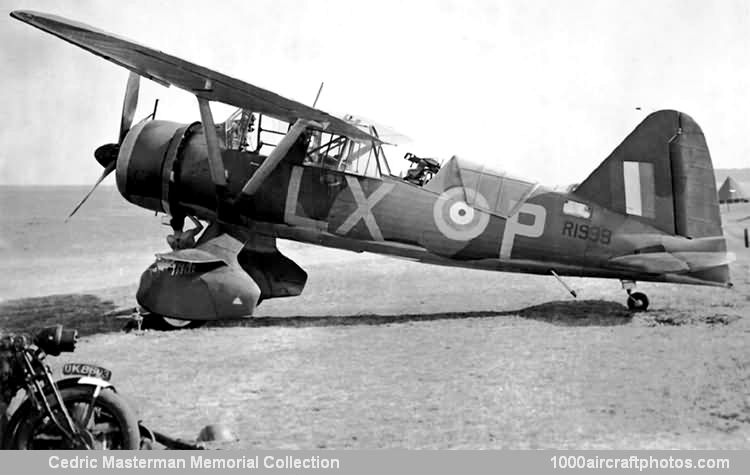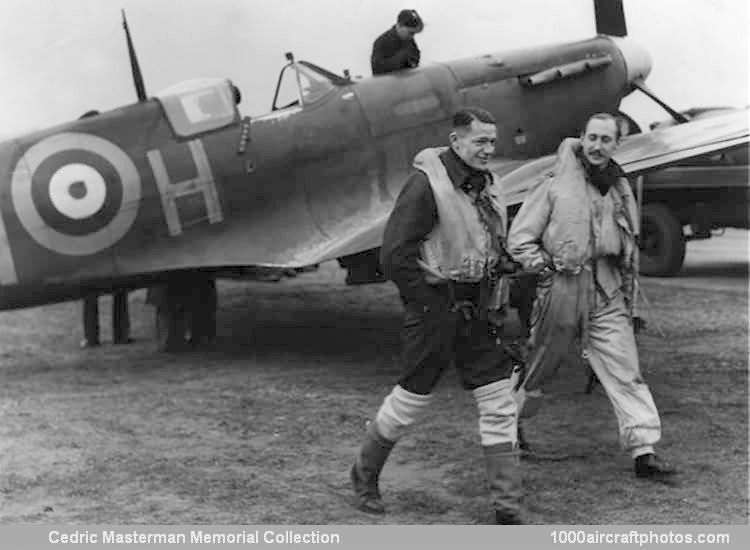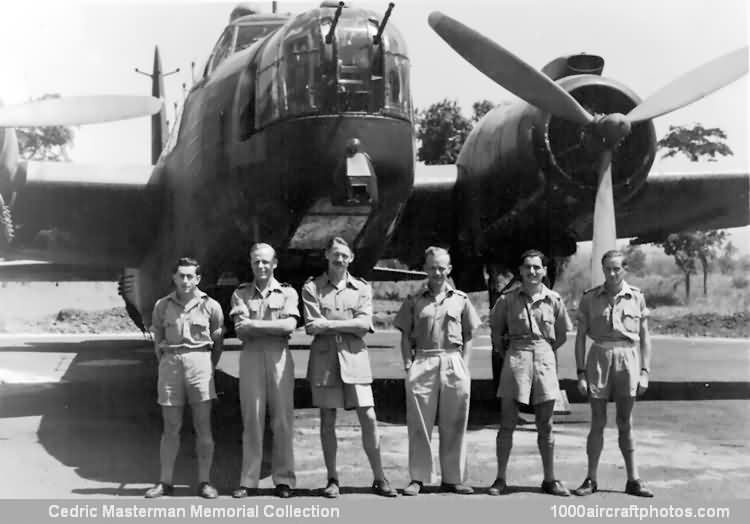



Group Captain Cedric Audley Masterman... joined the RAF in 1935 on a short service commission, flying with No. 26 Army Co-operation Squadron as a Hawker Audax biplane pilot. Posted to No. 28 Squadron at Ambala, on the Northwest Frontier of India, in November 1936, Masterman flew on counter-insurgency operations to monitor and frustrate the activities of troublesome Waziri tribesmen...
Back in Britain by the time war came in September 1939, Masterman joined No. 225, an Army Co-operation squadron equipped with Westland Lysanders... as a flying instructor, and then served briefly with No. 232, a Hawker Hurricane fighter squadron. After converting to Supermarine Spitfires, Masterman received command, in October 1941, of No. 72 Squadron, in the celebrated Biggin Hill Wing. He proceeded to lead the squadron on fighter sweeps over France, destroying a Focke-Wulf Fw 190 fighter, sharing another Fw 190 and also a Messerschmitt Bf 109.
After a short spell in early 1942 as Biggin's wing commander flying (and a posting) to Malta... Masterman returned to operational flying. Placed in command of No. 227, a Bristol Beaufighter squadron, he led a series of outstandingly successful operations. In two weeks, during which his squadron shot down 16 enemy aircraft, Masterman increased his own score to six, and led No. 227 as it shot up aircraft on the ground, sank or damaged enemy shipping and attacked trains, petrol dumps and road columns.
It was here that he won his immediate DFC (Distinguished Flying Cross): "The splendid example and zest for operational flying exhibited by this officer have at all times inspired his squadron," his citation read. "He is an intrepid leader whose one desire is to destroy the enemy in whatever sphere he may be found."
Rested from the New Year of 1943 as wing commander training at Eastleigh in Kenya, Masterman resumed operations in the Mediterranean in October with No. 203, a Martin Baltimore ground reconnaissance and light bomber squadron. Shortly afterwards, No. 203 moved to India, where it was re-equipped with Vickers Wellingtons for coastal patrols and convoy escort duties. Masterman came to the notice of Admiral Lord Louis Mountbatten... and served on his staff in Delhi, India, and in Burma. Masterman returned home in May 1945, to take a permanent commission and to attend staff college.
After a spell at Transport Command, he went to British Commonwealth Air Forces headquarters at Iwakuni, Japan. Later he served on the Intelligence staff during the Malayan emergency. His final posting, in 1955, was as Air Attaché in Prague, Czechoslovakia.
Chris has written a book about his father's flying career and later battle with Alzheimer's disease which was published in 2010. The title is "An Average Pilot?"